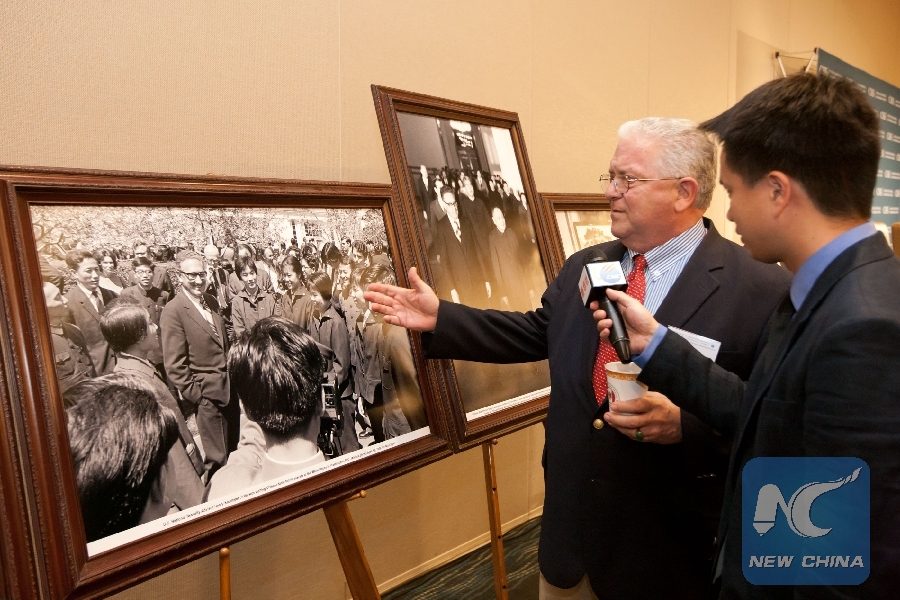
File Photo: Chas Freeman Jr., a veteran diplomat who served as Richard Nixon's interpreter when the then U.S. president visited China in 1972, gestures in front of a 1972 photo capturing the moment when a group of Chinese table tennis players visited the White House, during a photo exhibition organized by Xinhua News Agency in Washington, the United States, on June 6, 2011. (Xinhua/Zhu Wei)
WASHINGTON, Nov. 9 (Xinhua) -- A former U.S. senior official said on Thursday that despite recent uproars in Washington, it is impossible for the United States and China to be disconnected, and the two nations shall "keep the door open" for a future improvement in relations.
In an interview with Xinhua via email, Chas Freeman, former U.S. assistant secretary of defense, said that "U.S.-China relations may deteriorate but disconnection is impossible."
"Our human, economic, and other ties are too strong for that," Freeman said. "There are challenges that neither of us can meet without the other."
The two countries were scheduled to hold their second diplomatic and security dialogue on Friday amidst mixed voices on U.S.-China relations. Some politicians and scholars even argued for an attempt to "disconnect" the two.
While there are headwinds in terms of the relations between Washington and Beijing, the globalization has determined that they have no other alternatives but to cooperate, according to Freeman, a fluent Chinese speaker who served as an interpreter for then U.S. President Richard Nixon in his maiden trip to China in 1972.
"Like it or not, we are joined by globalization. No countries want to have to choose between alignment with China or the United States," said Freeman, who is also a senior fellow at Brown University's Watson Institute.
"There will be no competing blocs of nations espousing contrary ideologies involved in our rivalry. We will have to cooperate on some things even as we oppose each other on others," he noted. "It is sad that our relations are deteriorating, but we must not overestimate the extent of the deterioration."
Speaking of China's rising global influence, which some in Washington see as hard to get accustomed to, Freeman said that "China is returning to a preeminent role in its region and a prominent role in global affairs."
"The United States can no longer claim superiority in some arenas or act unilaterally but must recognize the emergence not only of China but of other power centers," he said.
"These are facts and trends, not the product of some sort of Chinese plot," he added.
As for problems that the two countries have encountered in the era of U.S. President Donald Trump, Freeman suggested open-mindedness for both sides.
"I think we are entering a period of stress and strain in U.S.-China relations but that, in time, China and the United States will rediscover the need to cooperate as well as (to) compete," he said.
"It is important that both sides remember this and keep the door open for a future improvement in relations," he noted.
"The challenges we face ... are such that we have no alternative to living and working together," he said. "The notion of a community and a shared future is an appropriate vision for us to aspire to."

